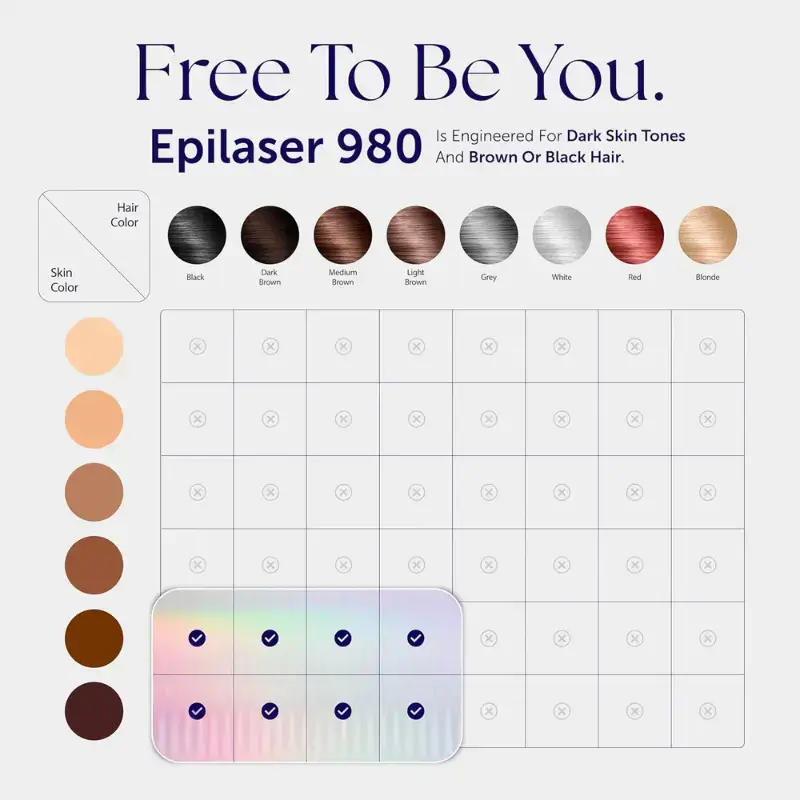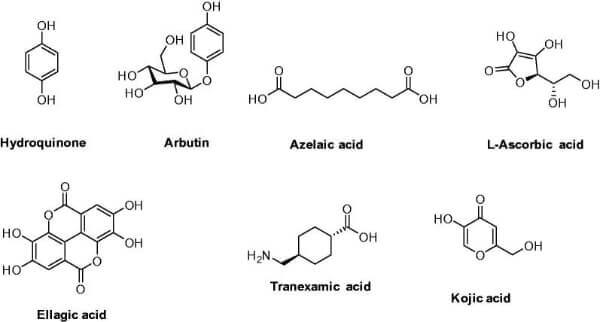
Epilaser 980: Safe Laser Hair Removal for for Dark Skin Tones
When it comes to at-home laser hair removal devices, virtually all Intense Pulsed Light (IPL) devices on the market are meant for people with lighter skin tones. This has now changed with the release of Epilaser 980, the new kid on the block. It is effective on darker complexioned people with skin type five or six on the Fitzpatrick scale,
The Epilaser’s patented Smart Precise Optical Targeting (SPOT) technology is designed to treat melanin-rich skin and hair colors with precision and safety foremost in mind. It will not discolor your skin since it only targets the hair follicles. The FDA-cleared Epilaser 980 device operates at a 980-nanometer wavelength.
Epilaser only targets the follicle, leaving the skin untouched. The device is cordless and rechargeable, and doesn’t require the user to wear any safety glasses or goggles during treatment. Unlike traditional IPL laser hair devices that run out of flashes, Epilaser 980 works for life.
The retail price of Epilaser 980 is currently $995. Online customer reviews seem to be favorable, although the device is not yet available for sale on Amazon.
How Does the Epilaser 980 work?
The Epilaser 980 IPL device comes with four smart camera-guided 24j/cm2 diode lasers. They help distinguish hair from skin, freckles and moles. Once the hair follicles are identified, all four of the diode lasers are activated. These lasers dynamically adjust wavelength, pulse duration, intensity, direction and focus based on the density and coarseness of the hair detected.
The patented SPOT™ technology makes use of an advanced deterministic algorithm to differentiate hair follicles from melanin and pigment. When you place the device across your skin, it immediately generates a high-contrast optical map of the treatment area in real time.
The Epilaser 980 is safe for use in all body areas, including on the face. However, avoid using it on or around your eyes or nose. Each treatment burst takes just a few seconds and is entirely pain-free. Epilaser’s manual states that:
- After a month of regular use (two to three times per week), you will see a significant reduction in hair regrowth. Moreover, as your hair follicle density lessens over time, Εpilaser treatment sessions will also become quicker.
- After three months (12 weeks), most users report a permanent decrease in hair regrowth. The treated body area will feel smoother and looking clearer.
- Beyond three months, you will just need rare touch-up sessions to keep things clear.
You can expect to see a minimum of 70% permanent hair reduction within 90 days of beginning treatment. Note that this same manufacturer also makes Epilaser 808 for at-home laser hair removal in people with light to medium skin tones.

